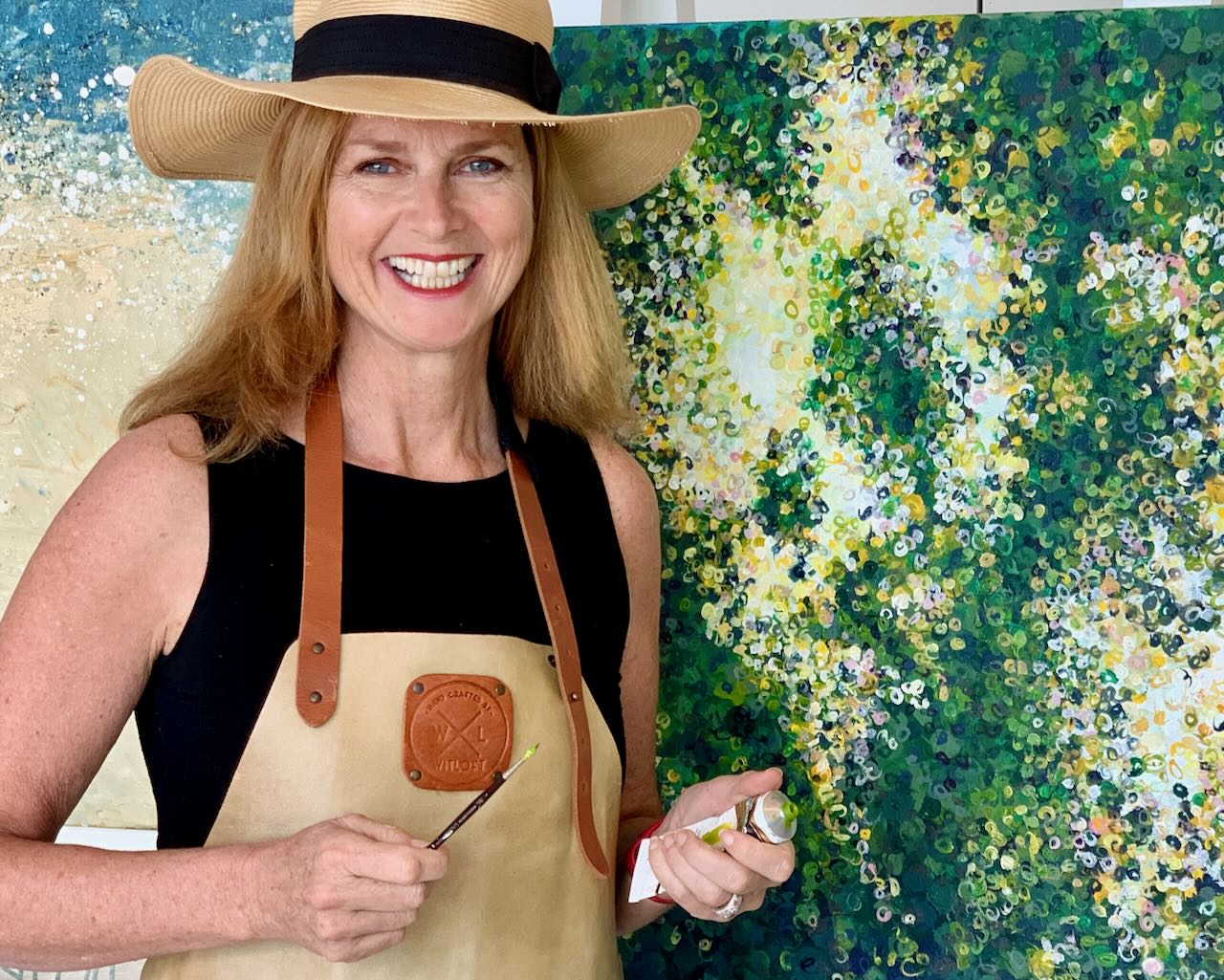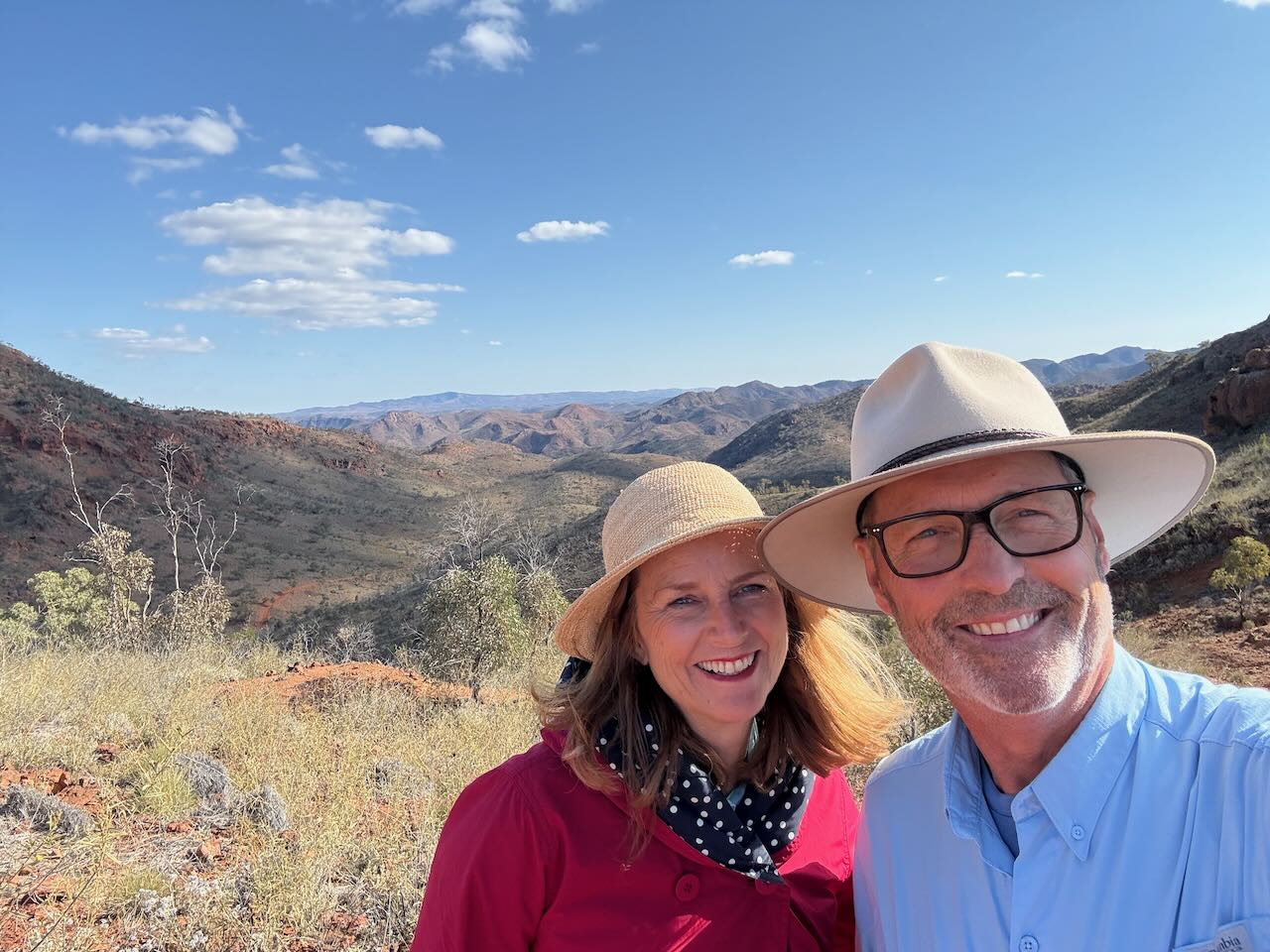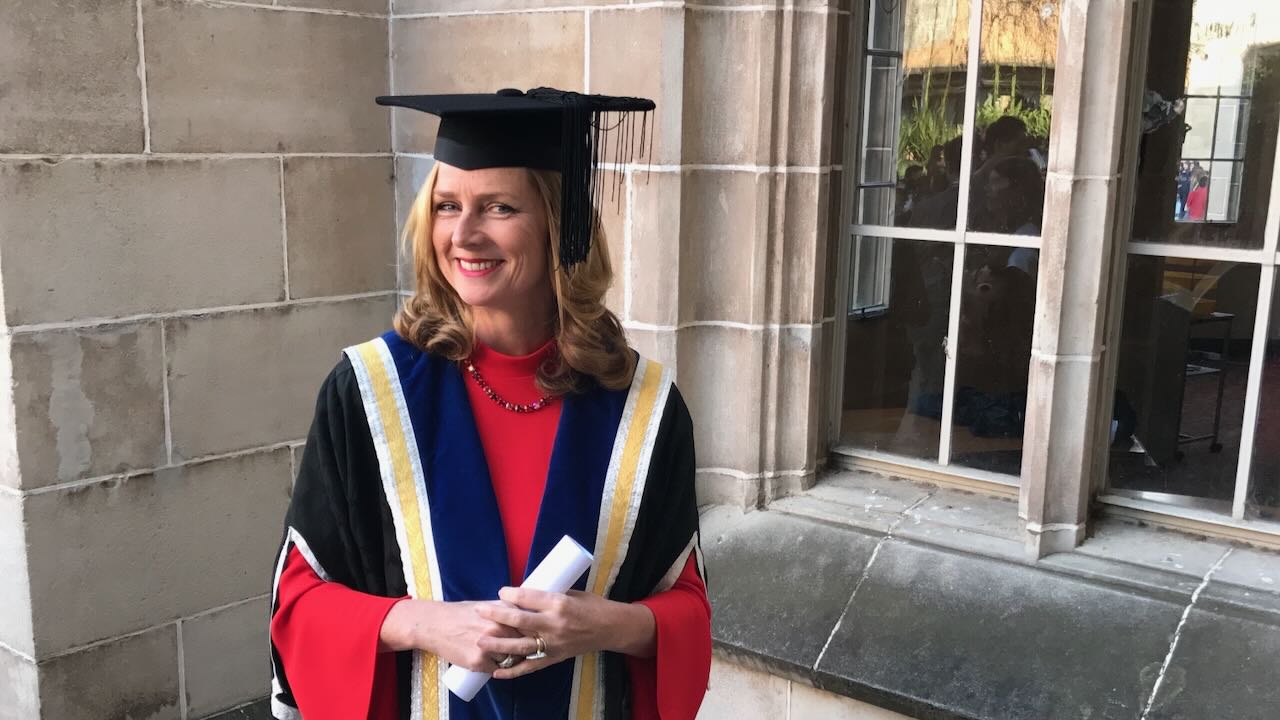Your Next Great Idea Isn't in Your Inbox: Four Truths About Wellbeing and Creativity
There's a scene that every small business owner knows by heart. It’s you, late at night, staring at a screen. The rest of the world is quiet, but your mind is screaming. You're trying to solve a problem—a marketing slogan that isn't working, a cash flow issue that needs a creative solution, a way to stand out from a new competitor. You need a brilliant idea, and you need it now.
So you try to force it. You drink another coffee, you pace the room, you bang your head against the metaphorical wall. You believe that if you just hustle harder, think more intensely, and push through the exhaustion, the lightning bolt of inspiration will strike.
I have lived that scene more times than I can count. And I can tell you, after years of trying to wring out ideas like water from a stone, that the lightning bolt never comes. Not like that. Because we're looking for it in the wrong place. We’re searching for creativity in a place of stress, and creativity simply does not live there.
The most game-changing small business life lesson I've ever learned is that creativity is not a product of hustle. It's a direct outcome of your wellbeing. It’s the prize you get for being well-rested, well-nourished, and well-connected. Your most innovative, profitable, and exciting ideas are not hiding in your inbox; they are waiting for you on the other side of a commitment to your own health.
This isn't a "soft" topic. This is the hardest, most strategic conversation a business owner can have. If you feel like your creative well has run dry, if you feel like you're just going through the motions, it's not because you've lost your passion. It’s because you've neglected your most important creative asset: you.
Here are four fundamental truths I've learned about the unbreakable link between small business wellbeing and the breakthrough ideas that build great companies.
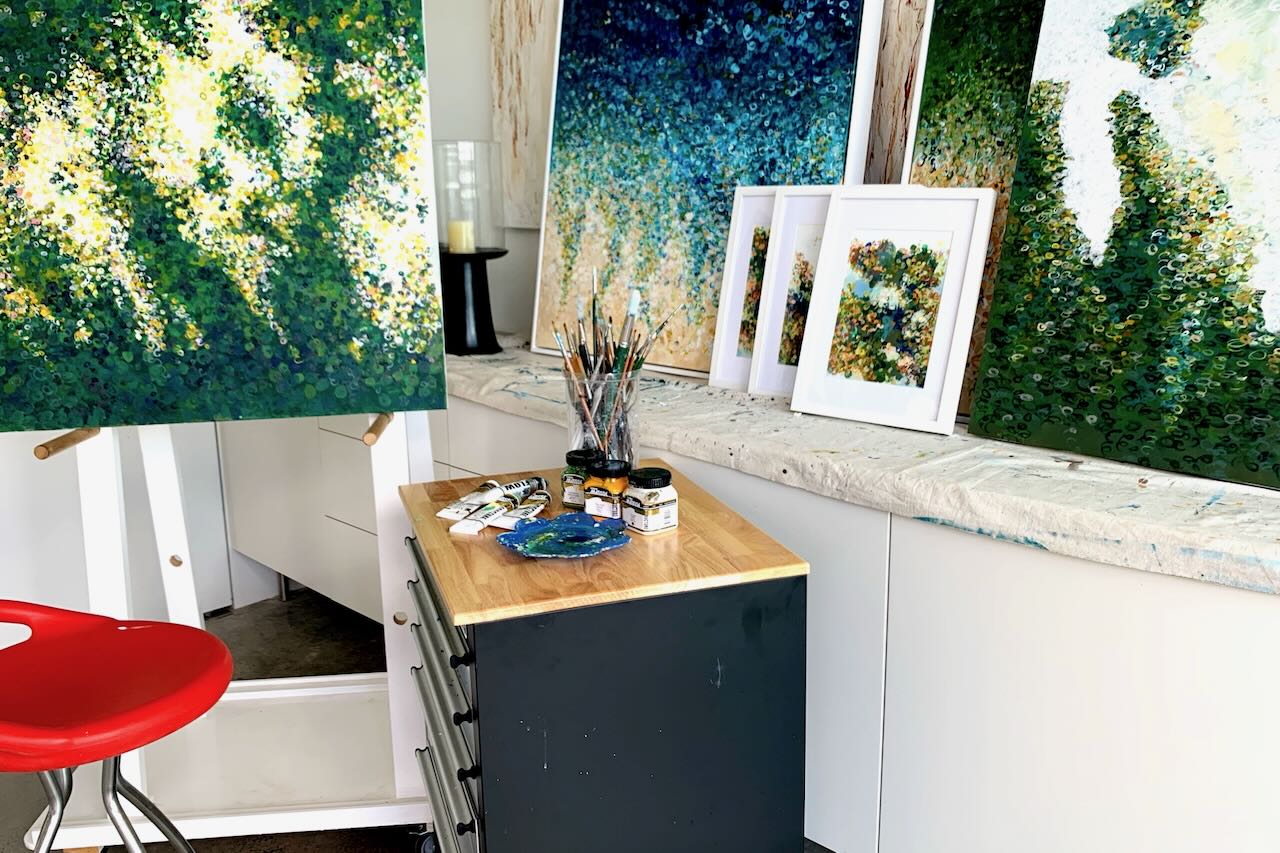
Truth #1: Your Best Ideas Don't Live at Your Desk
A small business can easily become your entire world. You eat, sleep, and breathe it. Your office or workshop becomes an echo chamber where the same problems, the same perspectives, and the same stale ideas bounce off the walls. You can’t read the label when you’re inside the bottle.
Creativity is the act of making new connections between existing ideas. If you don't feed your brain a steady diet of new, interesting, and varied inputs, you have nothing new to connect. You're just rearranging the same old furniture in your head.
This is why stepping away from your business isn't a distraction from your work; it's a critical part of your creative work. It's about finding what I call a "Third Space"—a place that is not your home and not your work, where you are not "The Boss."
- It's the local pottery class where you're just a beginner, focused on the simple, tactile feeling of clay on a wheel.
- It's the community garden where you're just another person with dirt under their fingernails, focused on nurturing a seedling.
- It's the art gallery where you're just an observer, letting someone else's vision wash over you.
- It's the bushwalking trail where your only job is to put one foot in front of the other and notice the sound of the kookaburras.
When you engage in these activities, you are not being lazy or indulgent. You are on a strategic mission to gather new dots. Your brain, in its own magical way, will then connect those dots back to your business challenges. The structure of a beehive might spark an idea for a new organisational chart. The story behind a painting might inspire a whole new marketing angle.
Your small business wellbeing is directly proportional to the richness and variety of your life experiences. The more you live, the more you have to create with.
Your Wellbeing Practice: This month, book yourself into one class, workshop, or activity that you are curious about but have told yourself you're "too busy" for. A cooking class, a language course, a volunteer information night. See it as a non-negotiable meeting with your Head of Research & Development.
Truth #2: Creativity Needs White Space, Not a Full Calendar
Let's debunk a massive myth right now. A back-to-back calendar is not a sign of importance. It's a sign of a brain that has no room to breathe. And a brain that can't breathe can't create.
Our culture celebrates being "flat out." But what we're really celebrating is a state of constant cognitive overload. When you are rushing from meeting to meeting, answering emails, and putting out fires, your brain is in a reactive, problem-solving mode. It's focused on the immediate, the urgent.
Creativity, however, happens in the quiet moments. It happens in the "in-between" spaces. Scientists call this the "default mode network"—a state your brain enters when you're not actively focused on a task. It's when you're daydreaming, walking, or just letting your mind wander. This is when your brain starts to sift through all the information you've gathered and make those surprising new connections we call "ideas."
If you don't give your brain any white space, any "fallow time," you are literally robbing yourself of your own best thinking.
Your Wellbeing Practice:
- Schedule a "Thinking Meeting": Block out 30 minutes in your calendar, twice a week. The title is "Thinking Meeting." The agenda is nothing. Go to a park bench, a coffee shop, or just a different room. You are not allowed to "do" anything. Just sit and think. It will feel strange at first. Lean into it.
- Practise Monotasking: For the next important task you do, close every other tab on your computer. Put your phone in a drawer. Focus on that one thing. By not forcing your brain to switch contexts every 45 seconds, you allow it to go deeper and produce higher quality, more creative work.
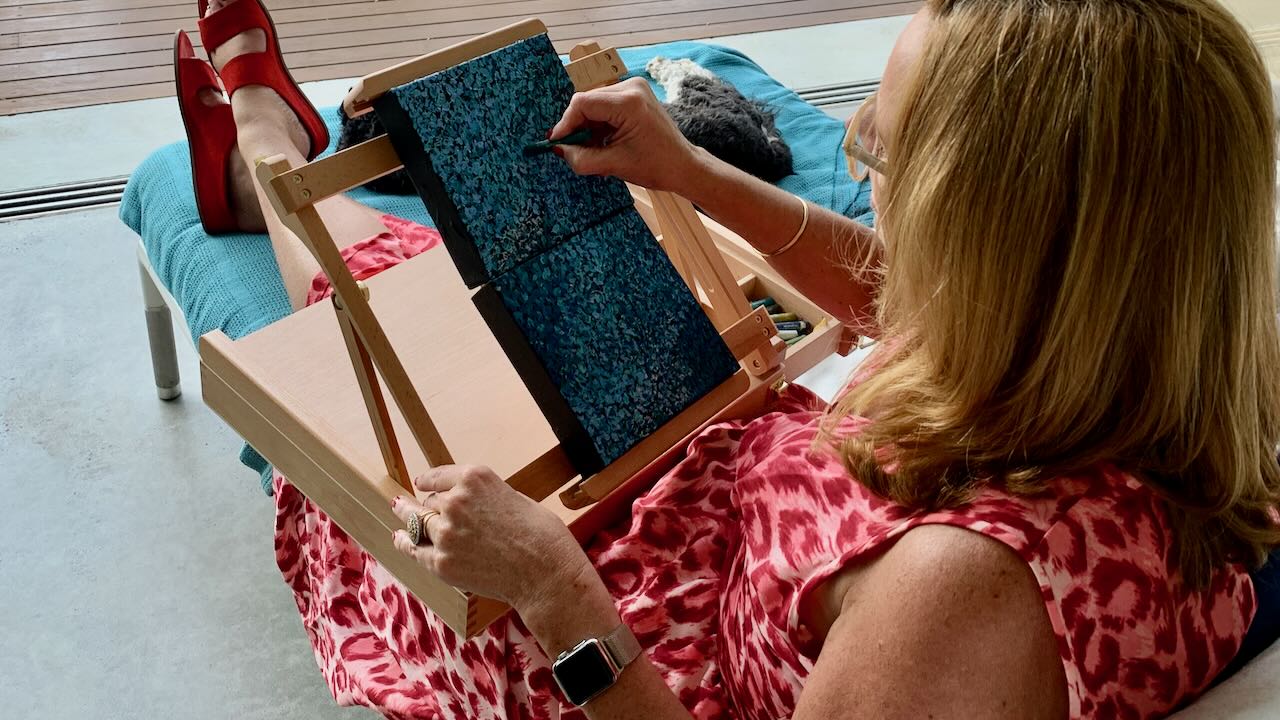
Truth #3: Creativity Dies in Isolation; It Thrives in Connection
The weight of being a small business owner can be crushing. The loneliness is real. You're the one who has to have all the answers, who has to be strong for everyone. This sense of isolation is a creativity killer.
A worried, isolated brain is a closed-off brain. It circles the same fearful thoughts over and over. You can't find a new perspective because you're trapped in your own.
This is where the wellbeing practice of genuine human connection becomes a powerful creative tool. I'm not talking about "networking" to get a sale. I'm talking about connecting with a trusted peer to share a problem.
Here’s the magic of it: the goal is not for them to solve your problem. The magic happens when you articulate the problem out loud to someone who gets it. The act of putting your jumbled, anxious thoughts into clear sentences often reveals the solution to you. You hear yourself say it, and suddenly, you see the path forward.
Furthermore, a brain that feels safe, seen, and understood is a brain that is open to new possibilities. When you have a strong support network—a "personal board of directors" made up of other founders, a mentor, or a coach—you outsource some of the emotional load. This frees up precious mental bandwidth for creative and strategic thinking.
Your Wellbeing Practice: Identify one other business owner you respect. Reach out and invite them for a coffee. Start the conversation with, "This is a whinge-fest zone. No solutions allowed for the first 20 minutes. Let's just talk about what's doing our heads in." That permission to be vulnerable is where real connection, and often, real clarity, is born.
Truth #4: Your Body is Your Business Partner, Not Your Workhorse
This is the most fundamental truth of all. The quality of your ideas is a direct reflection of your physical state. You cannot have a creative mind in an exhausted body. It's a biological impossibility.
- Sleep is your creative fuel. While you sleep, your brain is hard at work, consolidating memories, clearing out metabolic waste, and forming the neural pathways that lead to new ideas. Treating sleep as a chore is like asking a chef to cook a gourmet meal with an empty pantry.
- Food is your brain's raw material. Your brain consumes about 20% of your body's energy. If you fuel it with sugar and processed junk, you get brain fog, mood swings, and sluggish thinking. If you fuel it with whole foods, healthy fats, and lots of water, you get clarity, focus, and sustained mental energy.
- Movement is a pattern interrupt. When you are physically stagnant, your thinking becomes stagnant. A brisk walk does more than get your heart rate up; it pumps fresh oxygen to your brain, releases mood-boosting endorphins, and literally changes your perspective by changing your physical environment. Many of my best ideas have come to me while I've been on a walk, run or a swim.
Your body is not a separate entity that you drag to work every day. It is your silent business partner. And its wellbeing is a non-negotiable prerequisite for the creative breakthroughs your business needs to thrive.
Your Wellbeing Practice: Pick one—just one—of these physical pillars to focus on this week.
- Sleep: Go to bed 30 minutes earlier than usual.
- Food: Commit to drinking two litres of water and eating a real lunch away from your desk.
- Movement: Schedule one 15-minute "thinking walk" into your day.
Don't try to overhaul your whole life. Just make one small, strategic investment in your physical wellbeing and notice the difference it makes to the quality of your thinking.
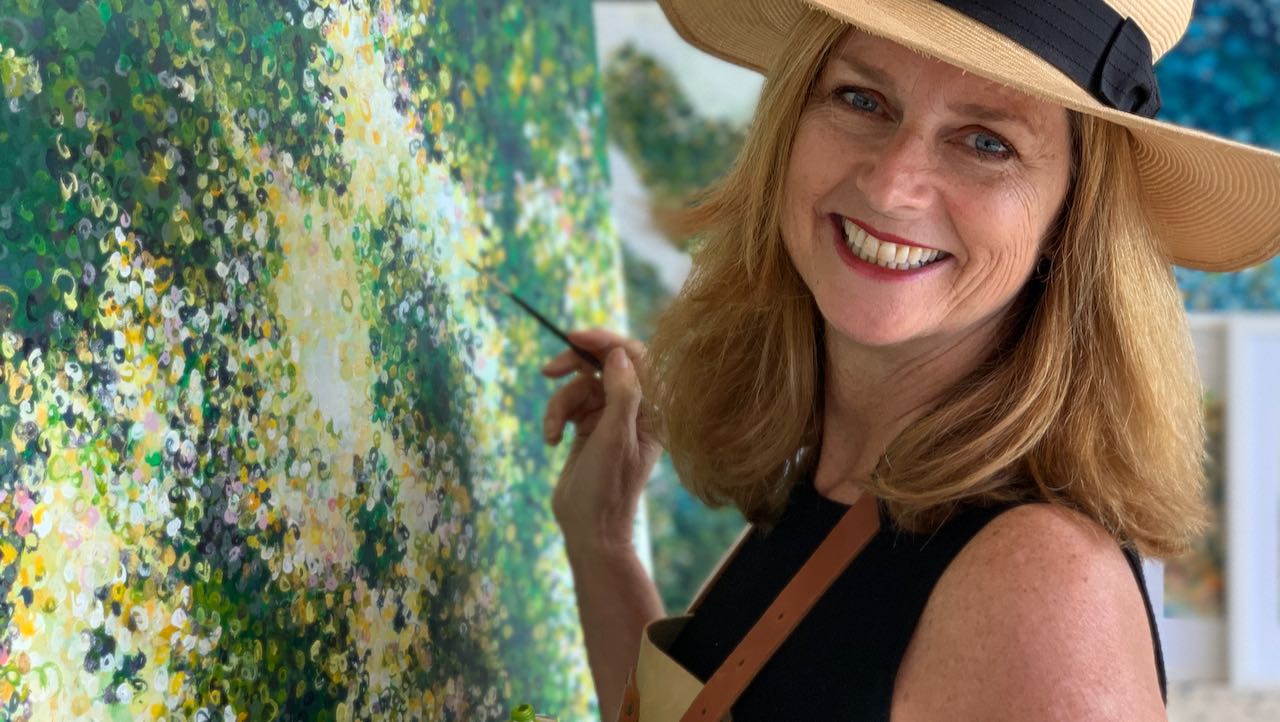
Your Best Work Awaits
As small business owners, we are creators. We build things from nothing. We solve problems. We innovate. This creative energy is our superpower. But it is not an infinite resource. It must be cultivated, protected, and replenished.
Stop looking for your next big idea in a spreadsheet or at the bottom of a coffee cup. Stop believing that burnout is the price of success. Your most valuable, innovative, and game-changing ideas are not waiting for you to hustle harder. They are waiting for you to be healthier.
They are waiting on the other side of a good night's sleep, a walk in the sunshine, a real conversation with a friend, and the courage to give your brilliant mind the white space it needs to do its best work. Your creativity is calling. Your wellbeing is the only way to answer.


